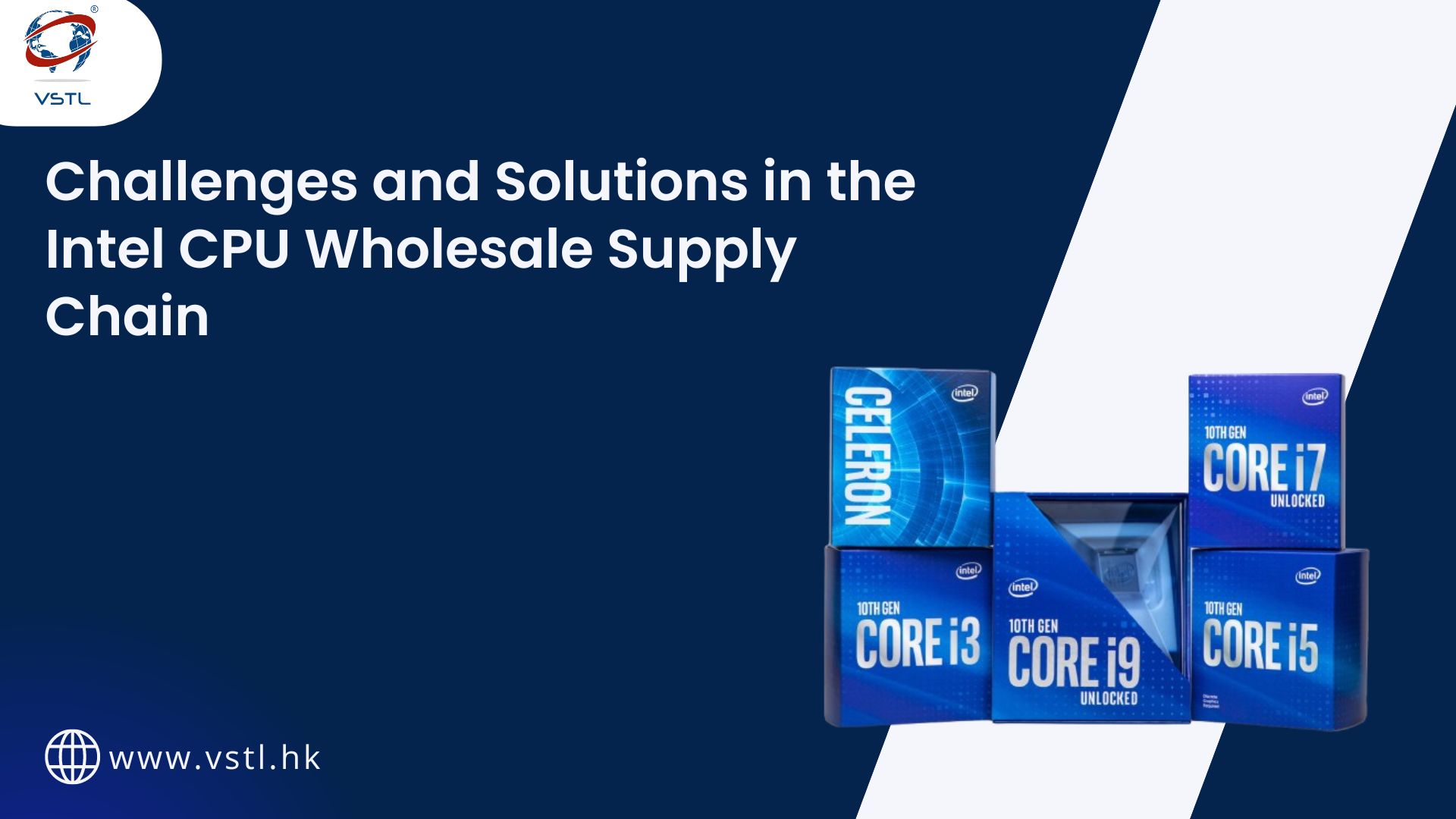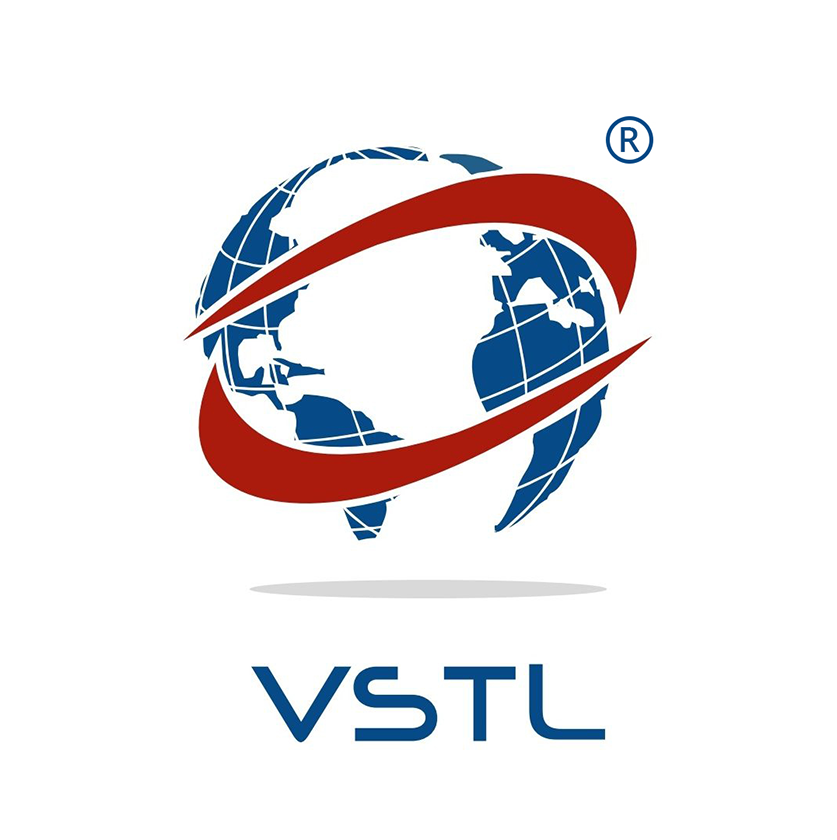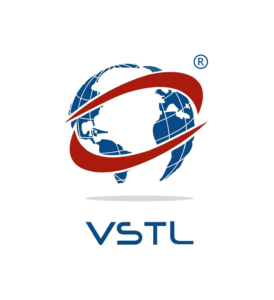
The Intel CPU wholesale supply chain is a complex and fast-paced system, essential for delivering high-quality processors to businesses, tech companies, and consumers across the globe. As a major player in the semiconductor industry, Intel’s products fuel innovations in computers, data centers, and emerging technologies like artificial intelligence (AI) and the Internet of Things (IoT). However, the path from manufacturing these powerful CPUs to delivering them to the market is fraught with challenges, particularly in the wholesale sector.
In recent years, wholesalers of Intel CPUs have encountered several hurdles, including global supply chain disruptions, fluctuating demand, and logistical issues. These challenges not only impact the bottom line but also strain relationships between suppliers, distributors, and end customers. In this blog, we will explore the key challenges facing the Intel CPU wholesale supply chain and discuss practical solutions to overcome them, ensuring business continuity and long-term success.
Challenge 1: Global Semiconductor Shortage
The global semiconductor shortage, exacerbated by the COVID-19 pandemic, has had a far-reaching impact on the tech industry, and Intel CPUs are no exception. The shortage has led to delays in production, increased costs, and scarcity of components necessary for building CPUs, creating bottlenecks in the supply chain. As a result, wholesalers face long lead times, unpredictable inventory availability, and higher prices, making it difficult to fulfill orders on time.
Solution: Diversify Suppliers and Build Stronger Partnerships
To mitigate the effects of shortages, wholesalers need to diversify their supply sources. Relying on a single supplier can be risky during times of disruption. By establishing relationships with multiple suppliers, wholesalers can ensure a more stable flow of Intel CPUs, even when supply constraints arise. Additionally, fostering strong partnerships with Intel and its authorized distributors can offer access to exclusive inventory, better pricing, and priority shipments.
Challenge 2: Demand Fluctuations and Market Volatility
The demand for Intel CPUs can fluctuate dramatically due to factors like product launches, seasonal changes, and technological advancements. For instance, the surge in demand for laptops and desktops during the work-from-home trend caused by the pandemic significantly impacted the availability of Intel processors. On the flip side, sudden drops in demand can lead to overstocking and excess inventory, which ties up capital and reduces profitability.
Solution: Implement Predictive Analytics and Inventory Management Tools
To address demand fluctuations, wholesalers can leverage predictive analytics and inventory management tools. By analyzing historical sales data, market trends, and customer preferences, wholesalers can better forecast future demand and optimize inventory levels. This approach minimizes the risk of overstocking or stockouts. Furthermore, having agile inventory systems allows wholesalers to adjust quickly to changing market conditions and take advantage of emerging opportunities.
Challenge 3: Logistics and Transportation Delays
Efficient logistics are crucial for the success of any supply chain, but transportation delays and disruptions are common challenges, especially in global markets. Factors such as port congestion, customs delays, and transportation bottlenecks can significantly slow down the delivery of Intel CPUs from manufacturers to wholesalers. These delays create a ripple effect, ultimately affecting retailers and end customers, leading to lost sales opportunities and customer dissatisfaction.
Solution: Optimize Logistics with Technology and Local Warehousing
Wholesalers can overcome logistics challenges by investing in supply chain visibility tools and collaborating with reliable logistics partners. Real-time tracking systems allow wholesalers to monitor shipments and proactively address potential delays before they escalate into bigger issues. Additionally, establishing local warehousing in key markets can help reduce transportation lead times and provide faster delivery to customers, mitigating the impact of global shipping disruptions.
Challenge 4: Counterfeit and Grey Market Products
The presence of counterfeit and grey market products is a persistent challenge in the semiconductor industry. Counterfeit CPUs can infiltrate the supply chain, leading to substandard performance, customer dissatisfaction, and potential legal liabilities for wholesalers. Similarly, grey market products—genuine CPUs sold through unauthorized channels—can disrupt pricing structures and undermine the integrity of the supply chain.
Solution: Source from Authorized Distributors and Implement Product Authentication
To combat counterfeit and grey market products, wholesalers must prioritize sourcing Intel CPUs only from authorized distributors. This ensures product authenticity and quality, as well as access to official warranties and support from Intel. Implementing product authentication tools, such as unique serial numbers or QR codes, can also help wholesalers verify the legitimacy of CPUs and protect their customers from fraudulent products.
Challenge 5: Managing Costs and Pricing Pressures
The cost of raw materials, manufacturing, and transportation can fluctuate, directly impacting the pricing of Intel CPUs. Wholesalers often face pressure to keep prices competitive, especially in a highly saturated market where customers are price-sensitive. However, rising costs can eat into profit margins, making it difficult for wholesalers to maintain profitability while meeting customer expectations for low prices.
Solution: Adopt Dynamic Pricing Strategies and Negotiate Better Terms
To address pricing pressures, wholesalers can implement dynamic pricing strategies that adjust based on market conditions, demand, and cost fluctuations. This approach ensures that prices remain competitive while protecting profit margins during periods of rising costs. Additionally, wholesalers should negotiate favorable terms with suppliers and logistics providers to secure better pricing and flexible payment terms, allowing for more control over cost management.
Challenge 6: Evolving Technology and Product Lifecycles
Intel CPUs evolve rapidly, with new generations of processors being launched frequently to meet the increasing demands for performance and efficiency. However, these rapid advancements can create challenges for wholesalers, especially when it comes to managing inventory. Older CPU models may become obsolete quickly, leading to excess stock that is difficult to sell, while newer models may be in high demand but difficult to source in large quantities.
Solution: Stay Informed and Agile with Product Launches
To navigate the fast pace of technological evolution, wholesalers must stay informed about Intel’s product roadmap and upcoming releases. By maintaining close communication with Intel and authorized distributors, wholesalers can plan their inventory purchases to align with product lifecycles. Pre-ordering newer models and offering attractive discounts on older inventory can help balance stock levels and reduce the risk of obsolete products.
Challenge 7: Regulatory Compliance and Trade Policies
Wholesalers operating in the global Intel CPU market must navigate a complex web of international trade regulations, tariffs, and compliance standards. These regulations can vary by region and can change quickly, affecting the cost and speed of shipping, taxes, and duties. Failure to comply with regulatory requirements can result in fines, delays, or even the seizure of products, creating significant risks for wholesalers.
Solution: Stay Up-to-Date with Global Trade Regulations
Wholesalers must stay informed about changes in international trade policies and regulations that affect the import and export of Intel CPUs. Partnering with a knowledgeable customs broker or legal advisor can help ensure compliance and minimize risks associated with regulatory changes. Additionally, implementing automated systems to track documentation and compliance requirements can streamline the process and reduce human errors.
Challenge 8: Environmental and Sustainability Concerns
As environmental regulations become stricter and consumers become more eco-conscious, wholesalers in the tech industry are under increasing pressure to adopt sustainable practices. The production and distribution of Intel CPUs, like many other electronic products, have an environmental footprint. Wholesalers need to address concerns about e-waste, energy consumption, and responsible sourcing to meet regulatory requirements and customer expectations for sustainability.
Solution: Embrace Green Supply Chain Practices
To stay ahead of environmental challenges, wholesalers can adopt green supply chain practices, such as reducing energy consumption in warehouses, optimizing transportation routes to lower emissions, and partnering with environmentally responsible suppliers. Promoting eco-friendly packaging and offering recycling programs for outdated CPUs can also demonstrate a commitment to sustainability and resonate with environmentally conscious customers.
Challenge 9: Cybersecurity Threats in the Supply Chain
As the wholesale supply chain becomes more digitized, the risk of cybersecurity threats has increased. Cyberattacks on supply chain management systems, data breaches, and hacking incidents can disrupt operations, compromise sensitive data, and damage the reputation of wholesalers. Protecting against these threats is essential for maintaining trust with suppliers and customers.
Solution: Invest in Robust Cybersecurity Measures
Wholesalers must invest in advanced cybersecurity solutions to protect their digital infrastructure and data. Implementing multi-factor authentication, encryption, and regular security audits can help mitigate risks. Additionally, training employees on cybersecurity best practices, such as recognizing phishing attempts and safeguarding sensitive information, can further strengthen the defense against cyber threats.
Challenge 10: Customer Expectations for Speed and Flexibility
In today’s fast-paced world, customers expect quick delivery, flexible payment options, and responsive customer service. Wholesalers who cannot meet these expectations risk losing customers to competitors. As Intel CPUs are often critical components for businesses and manufacturers, delays or poor customer service can have a ripple effect, impacting entire production processes.
Solution: Enhance Customer Experience with Technology and Personalization
To meet evolving customer expectations, wholesalers should invest in technology that enhances the customer experience, such as automated order tracking systems, AI-powered customer support, and flexible payment gateways. Offering personalized solutions, such as tailored discounts or faster shipping options for loyal customers, can also improve satisfaction and build long-term relationships.
Conclusion
The Intel CPU wholesale supply chain is a vital component of the global technology ecosystem, but it faces numerous challenges that require strategic planning and agile solutions. By addressing issues like supply shortages, demand fluctuations, logistics delays, and cybersecurity threats, wholesalers can optimize their operations and maintain a competitive edge in the market. Embracing technological advancements, sustainability practices, and customer-centric approaches will further strengthen the supply chain, ensuring long-term success and resilience in an ever-evolving industry.
With these solutions in place, wholesalers can navigate the complexities of the Intel CPU supply chain, ensuring they remain agile and competitive in a rapidly changing market. The key to success lies in being proactive, adaptable, and committed to delivering value to customers, suppliers, and the environment.

